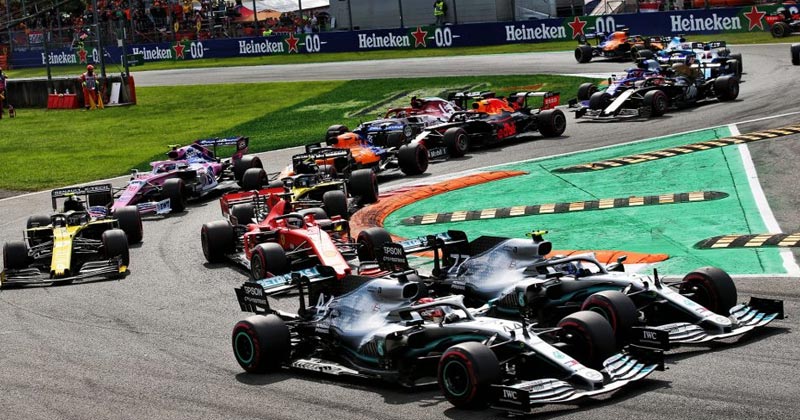The F1 engine mode restriction, which was originally scheduled to come into play at the home of the Belgian Grand Prix, Spa-Francorchamps, will now only come into factor at Monza, the home race for Ferrari, and among the most widely-watched racing events in the F1 world.
A move that Lewis Hamilton isn’t apparently too big a fan of, suggesting that the FIA are probably bringing about this imposition to slow down the visibly dominant and unquestionably brilliant Mercedes cars, the 2019 world champion feels that this may not be the best thing to do.
At the same time, if one were to rewind one’s attention to a famous Press Conference that took place three years back in time, the 2017 Australian Grand Prix presser, to be precise- then one of the things that Fernando Alonso said, pretty much stood out, for it was referenced to the engines used by the current F1 cars.

The double world champion from Asturias, Spain said, “Equal engines for everyone,” when asked what might he wish as a possible future change in the sport.
Now, coming to the F1 engine mode, the entire idea is to fundamentally attempt introducing greater equality among all competing cars- 10 teams, and 20 drivers to be precise.
According to the new F1 engine mode restriction, teams would run on the same engine mode specifications whether it’s the qualifying day or the main race-day.
Typically, power is turned up to the maximum but only in short bursts, during qualifying. The said move ensures greater lifespan for the car and the engine-health.
But, having said that, the FIA’s clampdown on the engine mode restriction has been pushed to the Italian Grand Prix. Earlier, however, the idea was to have the ruling in effect come the famous Belgian race, held annually, at the heart of the Ardennes in Western Europe.
A report from Motorsport.com published some interesting excerpts on the developing story and shared the following:
Under the heading “power unit ICE modes – reduction of the scope of adjustability between qualifying and the race” Bayer explained that the FIA would restrict modes via a technical directive that would be issued prior to the Belgian GP.
Justification for the change was given with reference to two separate regulations. The first was Article 2.7 of the 2020 technical regulations, headed “Duty of Competitor,” which says: “It is the duty of each competitor to satisfy the FIA technical delegate and the stewards that his automobile complies with these regulations in their entirety at all times during an Event.
Also Read: Why Formula 1 Drivers Are Looking Forward To The Turkish Grand Prix?
“The design of the car, its components and systems shall, with the exception of safety features, demonstrate their compliance with these regulations by means of physical inspection of hardware or materials. No mechanical design may rely upon software inspection as a means of ensuring its compliance.”


